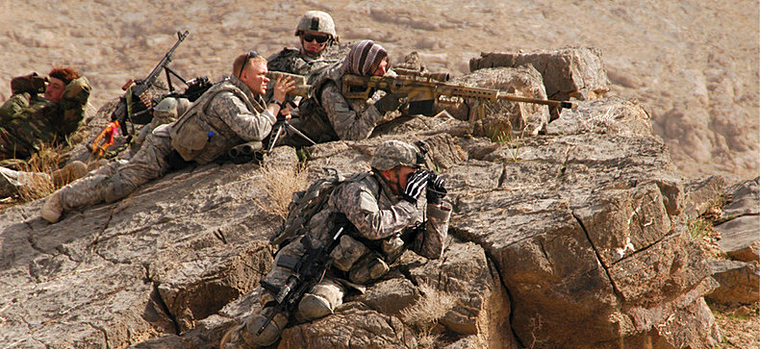
I entered adulthood protesting and criticizing war, and it seems that I will leave it that way. As I enter senior-citizenship I can’t help but wonder why the world needs to learn the same sorry lessons over and over again. It’s not like there are no historical records; WWII was well covered by the press, and the Vietnam War was the most highly documented conflict in the history of the world. By 1969 the nightly news included yet another report on “search and destroy,” “pacification,” and death, all of it in living color.
The politicians of the time were split on the war, and the split widened in ratio to the war’s duration. Proponents talked about the disaster that would ensue should America be defeated; the “domino effect” would hand Southeast Asia over to the Communists, and there would be a massive bloodletting. Opponents protested that Vietnam had been under the thumb of colonial powers for generations, and that the war between the north and south was less about ideology than seeking independence from western nations. Ultimately, America departed, North Vietnam prevailed, the country was unified, and now Vietnam is a growing trade and tourism partner with the United States.
Today’s Iraq war, well into its fourth year, is provoking precisely the same arguments. Proponents talk about the disaster of defeat and the victory of terrorists; opponents see the war as another example of America’s penchant to try to control the political destiny of other nations. My vote is with the opponents, and 20 years from now, I’ll bet we will be promoting tourism to the historical sites of Baghdad, the fertile crescent and ancient Mesopotamia.
In the meantime, though the media coverage about it is far lighter than that of Vietnam, each day the count of dead and wounded grows longer. I find myself staring at the list of dead soldiers at the end of the Lehrer News Hour on PBS, and feeling numb. Silently, a face, a name, a city of origin appears. One fallen soldier follows on the heels of another, accompanied by their age. The young ones bother me the most; 19, 20, 21 years old. I weep as the list grows longer.
We modern people like to think of ourselves as sophisticated and intelligent, not at all like the ancient primitive people who foolishly sacrificed lives for the sake of a good harvest. Yet, are we not sacrificing our young to satisfy our modern gods of commerce or geopolitics instead of ancient gods of harvest or fertility? If the mounting toll of American and Iraqi deaths were not so very real and so terribly sad, such intellectual inquiry might be of scholarly interest. As it is, these deaths are a tragedy.
And, the tragedy will only be enlarged by increasing the number of troops we send; this is the lesson of Vietnam. I remember when the number hit 500,000 U.S. troops, amid comments from General Westmoreland about “light at the end of the tunnel.” Talk of victory is unseemly and cheap, particularly when it is someone else’s child sent to die. In the film “The Fog of War,” President Johnson’s Secretary of Defense Robert McNamara admitted that he knew that Vietnam was lost well before we had 500,000 troops stationed there, and that the young were sent to die for purely political purposes. It now appears that our current President is foolishly about to do the same. Talk about primitive.